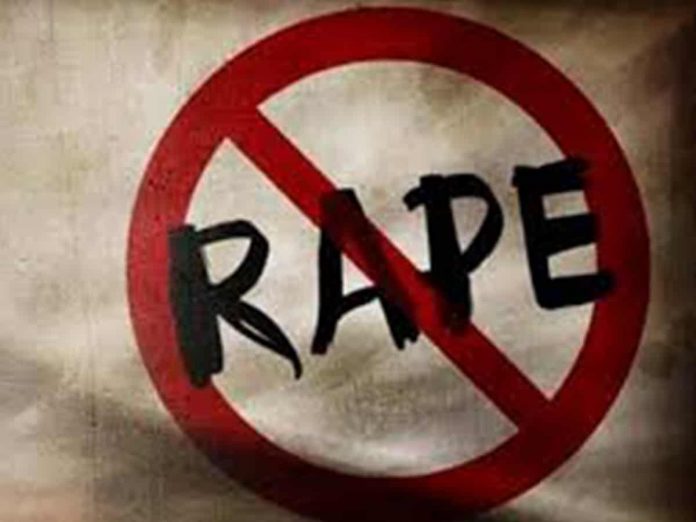This article is written by Dnyaneshwari Patil from RTMNU Babasaheb Ambedkar College of Law, Nagpur. This article deals with the status of marital rape in India. The origin of the patriarchal concepts and the arguments and reasons cited by the state for not criminalizing marital rape in India.
Table of Contents
Introduction
Consent is like a boxing sport; if one person does not have consent, the other person commits a crime. The same goes for consent for sexual intercourse. If a woman does not agree to it, then the man is considered to have committed rape. However, when a married woman gets raped by her husband, it does not amount to a crime. The consent of a wife is not considered necessary when it comes to sexual intercourse between a married couple. It is 2021, and India remains among the 36 countries where it is not a crime for a man to rape his wife. Devaluing the rape experience of a wife accentuates the rape culture and misogynistic attitudes in India. Marital rape is a manifestation of domestic violence. In India, 70 percent of women are the victims of domestic violence, according to National Crime Records Bureau’s (NCRB) ‘Crime in India’ 2019. Even though several amendments are made in criminal law to protect women, the non-criminalization of marital rape in India still devalues, dehumanizes, and undervalue the dignity and human right of women.
Reason for the non-criminalisation of marital rape
The non-criminalization of marital rape started with an archaic doctrine of the British era. In the common law system, a wife is not a complete juridical person and has limited rights. Sir William Blackstone described the doctrine of coverture as “By marriage, the husband and wife are one person in law: that is, the very being or legal existence of the woman is suspended during the marriage, or at least is incorporated and consolidated into that of the husband: under whose wing, protection, and cover, she performs everything; and is therefore called in our law-French a feme-covert….”
Thus, Under the doctrine of coverture, a woman was legally considered the chattel of her husband, his possession. Any property the woman might hold before her marriage became her husband’s on her wedding day, and she had no legal right to appear in court, to sign contracts or to do business. the notion of marital rape is highly influenced by this doctrine, highlighting the merging of women’s identity with the husband. The drafting of provisions regarding rape offences was done when women were not considered as a separate entity from men. The rape norms are based on the patriarchal established doctrine, which did not recognize men and women as equals.
Status of marital rape in India
Section 375 of the Indian Penal Code defines rape as an act of sexual intercourse with a woman without her consent, against her will, or under any kind of misconception or fear, then the man is guilty of rape. The consent is immaterial if the woman is under the age of 16. However, Exception 2 of Section 375 emanates the culture of non-criminalization of marital rape. Exception 2 provides that sexual intercourse by a man with his wife is not rape; however, the wife being under the age of 15 would amount to rape. Exception 2 exempts the unwilling intercourse between husband and wife from the scope of the definition of rape if the wife is over 15 years of age (currently 18 years). Thus, marriage between husband and wife implies perpetual consent to sexual intercourse once entered into a marital relation. Marital rape is the epitome of what we call “implied consent”.
Since the year 1997, several petitions have been filed in the Supreme Court regarding the enlargement of the definition of Section 375. The petitions filed have prayed that “sexual intercourse” should include all forms of penetration such as penile/ vaginal penetration, penile/oral penetration, penile/anal penetration, finger/anal penetration, finger/vaginal penetration, and object/vaginal penetration.
The petition finally came to be decided in the judgment of Sakshi v. Union of India (2004). The issue raised was to include all forms of sexual intercourse within the ambit of rape defined in Section 375. However, the Supreme Court upheld the existing definition of rape and refused to include other forms of penetration within the purview of rape. The Court reasoned that changing the definition would create ambiguity and confusion, which would not be in the interest of society at large.
After the occurrence of one of the most barbaric acts against a woman, i.e. Nirbhaya gang rape and murder, the Parliament finally woke up and constituted the justice J.S Verma Committee. The committee formed a report which formed the basis of the Criminal Law (Amendment) Act of 2013, which accepted the recommendations of the J.S Verma committee. Changes, as suggested above, were brought under the definition of rape in Section 375 of IPC. However, the advice regarding the criminalization of marital rape was not accepted. The amended definition of Section 375 now conforms with the prayers mentioned in the case of the Sakshi batch of the petition.
Another batch of writ petitions came to be decided by the Supreme Court in Independent Thought v. Union of India (2017), where it argued that Exception 2 was not amended and resulted in a situation that permits forced sexual intercourse by a husband with a minor wife between the ages of 15 and 18 and violated any girl’s basic fundamental rights due to child marriage. Therefore, the Supreme Court struck down the previous provision and increased the age for giving consent to sexual intercourse within marriages to 18.
Protection under Domestic Violence Act, 2005
The Protection of Women from Domestic Violence Act (2005) regards marital rape as a form of domestic violence. The Act of 2005 protects women from any physical or mental cruelties of all forms, including sexual abuses. Under the Domestic Violence Act, the offence of marital rape provides for a lesser jail term than non-marital rape. The remedy provided under the domestic violence act is civil and not criminal. This is the only remedy available to the victim for protection from marital rapes. The magistrate has the power to appoint protection officers under the 2005 Act to protect wives or live-in partners from domestic violence. A woman who has been abused can also seek judicial separation from her husband. However, even if it does not criminalize the offence, it still shifted the state approach from non-interference into family relations to protecting women in their domestic environment.
Reasons cited for not criminalizing marital rape
“It is against the Indian culture”
The former Chief Justice of India, Dipak Mishra, on marital rape, said, “I don’t think it should be regarded as an offence in India. In villages, It will create absolute anarchy in many families, and our country is sustaining itself because of the family platform which upholds family values.” He also mentioned that problems like illiteracy, lack of financial empowerment of the majority of females, the mindset of the society, vast diversity, poverty, etc., needs to be considered before criminalizing marital rape. He argued that people blindly following western customs must understand that cultural and socio-economic differences between the two regions create an environment in which India is not ready for criminalizing marital rape. The fear of marriage falling apart in India makes the government reluctant to criminalize marital rape.
However, in Independent Though v. Union of India, the SC mentioned that if divorce and judicial separation cannot destroy the institution of marriage, then criminalizing marital rape would surely not destroy it. In Nimeshbhai Bharatbhai Desai vs State Of Gujarat (2018), the Gujarat High Court held that marital rape violates the trust and confidence within the marriage, which damaged the institution of marriage.
Women’s perpetual implied consent after marriage
The notion of perpetual implied consent is based on deeply rooted patriarchal thinking. It dated back to the 1700s when women were considered chattel to their husbands. But in the 21st century, the provision discriminates against women. Women should have the right to autonomy and physical integrity regardless of whether she is married or not.
Women might misuse the law on marital rape against men
The legislature believes that criminalizing marital rape would give an easy tool in the hands of women for harassing their husbands. The women will falsely accuse their husbands of any sexual act between them; the discretion, whether it is a marital rape or not, solely lies on women. However, even if some women may misuse the law, it is the judiciary’s duty to make out the false cases and dispose of them with an appropriate penalty. Instead of focusing on protecting women, the government has shifted the injustice to the abuser who is being presented as a victim of a false complaint.
The Indian Constitution and marital rape
Exception 2 is a clear violation of women’s fundamental rights of equality, dignity, and privacy. Article 14 of the Indian Constitution guarantees equal protection to all its citizens, and any classification should be based on intelligible differentia. However, the exception violates the rights of married women who are the victims of marital rape by treating them differently from their husbands and other victims of rape. The classification based on marital status is not a reasonable classification, and hence it infringes Article 14.
Article 21 guarantees the protection of life and liberty. The right to life is not restricted to mere animal existence but also includes the right to live with dignity (Maneka Gandhi Case). Exception 2 violates a host of rights as referred to in Article 21, such as the right to privacy, right to bodily self-determination, right to live with dignity, and right to good health. In several judgments, the SC has held that the offence of rape violates the right to live with the human dignity of the victim of the crime. In Bodhisattwa Gautam v. Subhra Chakraborty (1995), the SC said that “Rape is thus not only a crime against the person of a woman, but it is also a crime against the entire society. It destroys the whole psychology of a woman and pushes her into deep emotional crises.” and hence it is violative of Article 21 of the Constitution.
Conclusion
The exemption in the Indian Penal Code stems from a long outdated notion of women. The women in the past were regarded as no more than the property of their husbands. The idea was due to the deeply-rooted patriarchy in the world that needs to be changed in today’s world. The government should aim to protect the bodily autonomy of all women irrespective of whether they are married or not. The argument that it would destroy the institution of marriage is not a reasonable contention. When a woman at home is not being treated with dignity and respect at that moment only, the failure of the marital relation reflects. The state should enter into the realm of home and bring the most atrocious crime under the purview of state laws. The license given to the husband for forced sex is a total negation of a woman’s self-worth. Therefore, there is a much-needed reform for criminalizing marital rape in India to protect women’s integrity and dignity in India.
Reference
- https://www.galgotiasuniversity.edu.in/pdfs/issue2.pdf
- https://www.livelaw.in/columns/marital-rape-has-the-law-in-india-made-sufficient-progress-1592
- https://theswaddle.com/marital-rape-inda-decriminalized-crime/
Students of Lawsikho courses regularly produce writing assignments and work on practical exercises as a part of their coursework and develop themselves in real-life practical skills.
LawSikho has created a telegram group for exchanging legal knowledge, referrals, and various opportunities. You can click on this link and join:
https://t.me/joinchat/J_0YrBa4IBSHdpuTfQO_sA
Follow us on Instagram and subscribe to our YouTube channel for more amazing legal content.
 Serato DJ Crack 2025Serato DJ PRO Crack
Serato DJ Crack 2025Serato DJ PRO Crack











 Allow notifications
Allow notifications


